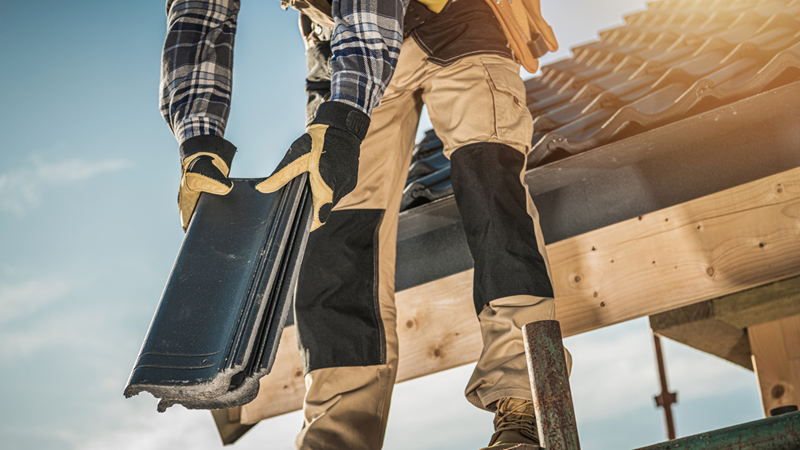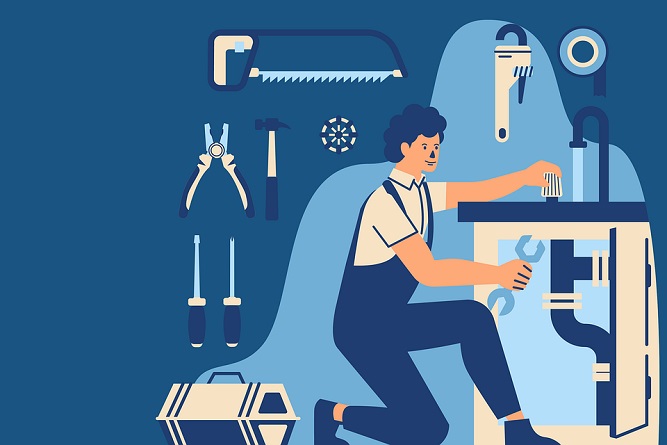Commercial Roofing Excellence: Choosing the Right Roofer for Your Business
Owning a business comes with a set of responsibilities, and one crucial aspect often overlooked is the condition of your commercial roof. The roof, though it may seem like a silent guardian, plays a vital role in safeguarding your assets and ensuring a secure working environment. When it comes to maintaining or replacing your commercial roof, choosing the right roofing contractor is key. Let’s explore the essentials of commercial roofing excellence and how to find the perfect roofer for your business.
Commercial Roofing vs. Ordinary Roofing: Understanding the Differences
When it comes to roofing, not all projects are created equal. Residential and commercial roofs serve distinct purposes, and the materials, design, and considerations for each can vary significantly. Let’s dive into the key differences between choosing to hire a Commercial Roofer and ordinary roofing for homes.
1. Structural Design and Scale:
Commercial Roofing:
Commercial buildings often have flat or low-slope roofs, providing practical space for HVAC systems, signage, and other equipment. The scale of commercial roofs is typically larger, covering expansive areas like warehouses, shopping centers, or office complexes.
Ordinary Roofing:
Residential roofs, on the other hand, come in various styles such as gable, hip, or mansard, designed to complement the architectural aesthetics of the home. These roofs are often sloped to facilitate water runoff and are smaller in scale compared to their commercial counterparts.
2. Material Selection:
Commercial Roofing:
Commercial roofs commonly use materials like TPO (thermoplastic olefin), EPDM (ethylene propylene diene terpolymer), or modified bitumen. These materials are chosen for their durability, weather resistance, and suitability for flat or low-slope roofs.
Ordinary Roofing:
Residential roofs typically feature materials like asphalt shingles, metal, wood, or tile. The choice of material often depends on factors such as climate, homeowner preferences, and the architectural style of the residence.
3. Functionality and Purpose:
Commercial Roofing:
Commercial roofs serve a functional purpose beyond protection from the elements. They may accommodate equipment installations, solar panels, or even rooftop gardens. The flat design allows for practical use of the roof space.
Ordinary Roofing:
Residential roofs primarily function as protective barriers, shielding the home from rain, snow, and other weather elements. While some homeowners may opt for solar panels, the primary purpose remains providing shelter and insulation.
4. Installation Complexity:
Commercial Roofing:
The installation of commercial roofs can be more complex due to their size and the specific requirements of flat or low-slope designs. Professional expertise and specialized knowledge are essential for proper installation.
Ordinary Roofing:
Residential roofing installation is generally more straightforward, and the process may vary based on the chosen roofing material. However, attention to detail and craftsmanship are still crucial for ensuring longevity and optimal performance.
5. Maintenance and Repairs:
Commercial Roofing:
Maintenance for commercial roofs often involves regular inspections, addressing potential issues, and ensuring the integrity of seams and materials. Repairs may require specialized knowledge, and prompt attention is crucial to prevent larger issues.
Ordinary Roofing:
Residential roofs benefit from regular maintenance such as gutter cleaning, inspections, and minor repairs. While the scope may be less extensive than commercial roofs, timely attention is key to preserving the longevity of the roof.
Whether it’s a commercial or residential roofing project, understanding the unique characteristics and considerations for each is essential. From the scale and design to material selection and functionality, both types of roofs play distinct roles in providing shelter and fulfilling specific requirements based on the structures they cover.
Choosing the Right Roofer for Your Business
1. The Significance of a Sound Commercial Roof:
Your commercial roof isn’t just overhead; it’s an investment in the longevity and resilience of your business. A well-maintained roof protects your assets, employees, and customers from the elements, ensuring a safe and productive working environment.
2. Qualities of a Reliable Commercial Roofer:
Selecting the right roofer is like choosing a business partner. Look for a company with a solid reputation for reliability, expertise, and a commitment to quality workmanship. A reputable roofer will possess the necessary licenses, insurance, and a proven track record in commercial roofing projects.
3. Experience Matters:
Commercial roofing isn’t a one-size-fits-all endeavor. A seasoned roofer brings a wealth of experience and understands the unique challenges associated with commercial properties. Whether it’s a large warehouse, retail space, or office building, an experienced roofer tailors solutions to suit your specific needs.
4. Quality Materials for Longevity:
A reliable roofer prioritizes the use of high-quality materials. Quality roofing materials not only enhance the durability of your roof but also contribute to energy efficiency, potentially lowering your utility costs in the long run.
5. Transparent Communication:
Effective communication is the cornerstone of a successful roofing project. A trustworthy roofer keeps you informed every step of the way, explaining the scope of work, timelines, and potential challenges. Transparent communication fosters a positive working relationship and ensures that your expectations are met.
6. Safety First:
Commercial roofing projects involve inherent risks. A reputable roofer prioritizes safety, implementing proper safety measures to protect both workers and occupants of the building. A commitment to safety underscores the professionalism of the roofing contractor.
7. Local Expertise:
Opt for a roofer with local expertise. Familiarity with local building codes, weather patterns, and architectural styles ensures that your commercial roof is not only compliant but also resilient in the face of regional challenges.
8. Client Testimonials and Reviews:
The best way to gauge a roofer’s performance is through client testimonials and reviews. A reputable roofer should be more than willing to provide references from previous clients. Positive feedback and satisfied customers are indicative of a roofer’s commitment to excellence.
9. Customized Solutions:
Each commercial roof is unique, requiring tailored solutions. A reliable roofer conducts a thorough assessment of your roof’s condition and proposes customized solutions that align with your budget and business needs.
10. Long-Term Relationship:
Choose a roofing contractor interested in building a long-term relationship. Regular maintenance, prompt repairs, and ongoing support ensure the sustained excellence of your commercial roof throughout its lifecycle.
Investing in the right commercial roofer is an investment in the success and longevity of your business. With a trusted roofing partner by your side, you can focus on what you do best, knowing that your business is protected by a top-notch commercial roof.





